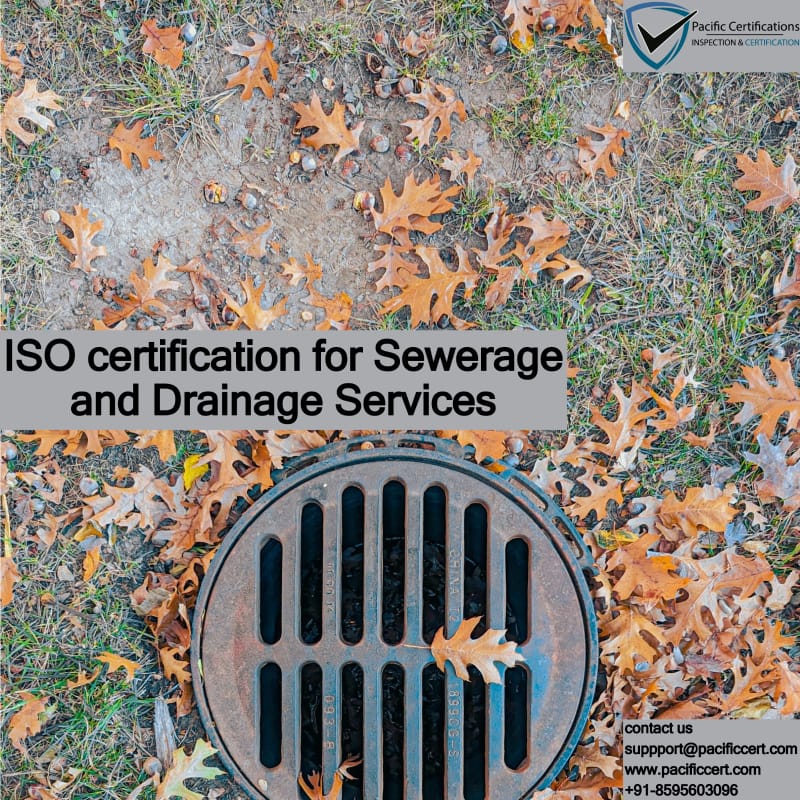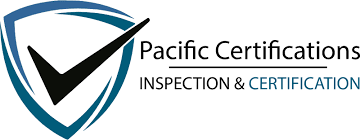ISO Certifications for Sewerage and Drainage Services, Requirements and Benefits

Introduction
Sewerage and drainage service providers operate at the core of urban public health, flood prevention, and environmental protection. These services include sewer network operation, stormwater drainage management, wastewater conveyance, pumping stations, overflow control, maintenance of pipelines and culverts, and emergency response to blockages, flooding, or system failures. Reliability, safety, and regulatory compliance are critical, as failures can result in public health risks, environmental pollution, and infrastructure damage.
Organizations delivering sewerage and drainage services manage extensive underground assets, high-risk confined space operations, wastewater flows, environmental discharge controls, and public service obligations under increasing climate and regulatory pressure. ISO certifications have therefore become an essential framework for sewerage and drainage service providers to demonstrate structured governance, asset reliability, environmental control, worker safety, and service continuity across complex utility networks.
In sewerage and drainage, resilience is measured by how systems perform when conditions are at their worst.
Quick Summary
ISO certifications provide sewerage and drainage service providers with internationally recognized frameworks to manage service quality through ISO 9001, sanitation and utility governance through ISO 24511, environmental protection through ISO 14001 and ISO 14046, occupational health and safety through ISO 45001, asset and infrastructure management through ISO 55001, risk governance through ISO 31000, information security through ISO/IEC 27001, and operational resilience through ISO 22301. These certifications help utilities reduce service failures, protect public health, manage infrastructure risks, and strengthen confidence with regulators and communities.
For more information on how we can assist your sewerage and drainage organization with ISO certifications, please contact us at [email protected].
Applicable ISO Standards for Sewerage and Drainage Services
Below are the most relevant ISO standards applicable to sewerage and drainage service providers:
ISO 24511:2007 – Wastewater and Sanitation Services
ISO 24511 is a sector-specific standard providing guidance on service quality objectives, performance indicators, customer communication, and governance for wastewater and sanitation utilities. It supports transparent, accountable sewerage and drainage service delivery aligned with public health and environmental requirements.
ISO 55001:2024 – Asset Management Systems
Sewerage and drainage networks consist of long-life, high-value assets such as pipelines, manholes, pumping stations, retention basins, and outfalls. ISO 55001 enables lifecycle planning, condition monitoring, failure risk reduction, and prioritized investment.
ISO 14001 & ISO 14046 – Environmental and Water Impact Management
These standards support systematic management of wastewater discharges, overflows, stormwater runoff, and water resource impacts, helping utilities meet environmental permits and sustainability objectives.
ISO 45001: Occupational Health and Safety Management Systems
Sewerage and drainage work involves confined spaces, biological hazards, gases, traffic exposure, and heavy equipment. ISO 45001 provides structured hazard identification, risk control, and emergency preparedness.
ISO 31000:2018 – Risk Management
ISO 31000 supports identification and mitigation of risks related to flooding, sewer collapses, overflow events, and regulatory non-compliance, particularly important as climate variability increases.
What are the Requirements of ISO Certifications for Sewerage and Drainage Services?
Sewerage and drainage service providers seeking ISO certification must establish and maintain documented policies, procedures, and records aligned with the selected ISO standards. Key requirements include the following:
ISO 9001:2015 – Quality Management Systems
Establish a documented quality management system
Define sewer operation, maintenance, and response processes
Control service execution and performance reporting
ISO 24511:2007 – Sanitation Service Governance
Define service quality objectives and performance indicators
Control customer communication and complaint handling
Monitor wastewater service outcomes
ISO 14001:2015 – Environmental Management Systems
Identify environmental aspects such as overflows and discharges
Implement pollution prevention and emergency controls
Monitor compliance and environmental performance
ISO 55001:2014 – Asset Management Systems
Identify critical sewer and drainage assets
Plan maintenance, renewal, and risk-based investments
Monitor asset condition and failures
ISO 22301:2019 – Business Continuity Management
Identify critical sewerage and drainage functions
Develop contingency plans for flooding or system failures
Tip:Start by mapping your sewerage and drainage lifecycle—from routine inspection and cleaning to overflow response, emergency repairs, and reporting—against ISO requirements to identify asset, safety, and environmental gaps early.
For further information on how we can assist your sewerage and drainage services with ISO certifications, contact us at [email protected].
What are the Benefits of ISO Certifications for Sewerage and Drainage Services?
ISO certifications are suitable for municipal sewer utilities, drainage authorities, wastewater conveyance operators, and infrastructure service contractors. Key benefits include:
Improved reliability of sewer and drainage networks, reducing blockages and failures.
Stronger environmental protection and pollution control, supporting regulatory compliance.
Enhanced worker safety in high-risk field operations, lowering injuries and incidents.
Better asset lifecycle planning and maintenance, reducing emergency repairs.
Greater resilience to flooding and extreme weather events, protecting communities.
Improved transparency and public confidence, supporting funding and approvals.
Sewerage and drainage services are under growing pressure from urban expansion, aging infrastructure, and climate-driven extreme rainfall events. Industry assessments indicate that over 30–40% of sewer networks in developed cities are more than 40 years old, increasing the frequency of blockages, collapses, and overflow incidents. At the same time, extreme rainfall events have increased flooding-related service disruptions by 20–30% in many regions over the past decade, driving stricter regulatory oversight and performance expectations.
Operational benchmarking shows that utilities implementing structured asset, environmental, and risk management systems achieve 15–25% reductions in sewer overflows, emergency callouts, and maintenance backlogs. Looking toward 2030, adoption of ISO 24511, ISO 55001, and ISO 31000 is expected to accelerate as governments and funding agencies increasingly require certified governance frameworks for sewerage and drainage infrastructure projects, positioning ISO-aligned utilities as more resilient, compliant, and publicly accountable.
How Pacific Certifications Can Help
Pacific Certifications, accredited by ABIS, acts as an independent certification body for sewerage and drainage service providers by conducting impartial audits against applicable ISO standards. Our role is to objectively assess whether documented management systems and operational practices conform to international ISO requirements, based strictly on verifiable evidence and records.
We support sewerage and drainage organizations through:
Independent certification audits conducted in accordance with ISO/IEC 17021
Practical assessment of real sewer operations, asset controls, and safety systems
Clear audit reporting reflecting conformity status and certification decisions
Internationally recognized ISO certification upon successful compliance
Surveillance and recertification audits to maintain certification validity
If you need support with ISO certification for your sewerage and drainage services, contact us at [email protected] or +91-8595603096.
Author:Ashish
Ready to get ISO certified?
Contact Pacific Certifications to begin your certification journey today!
Suggested Certifications –
Read more: Pacific Blogs
